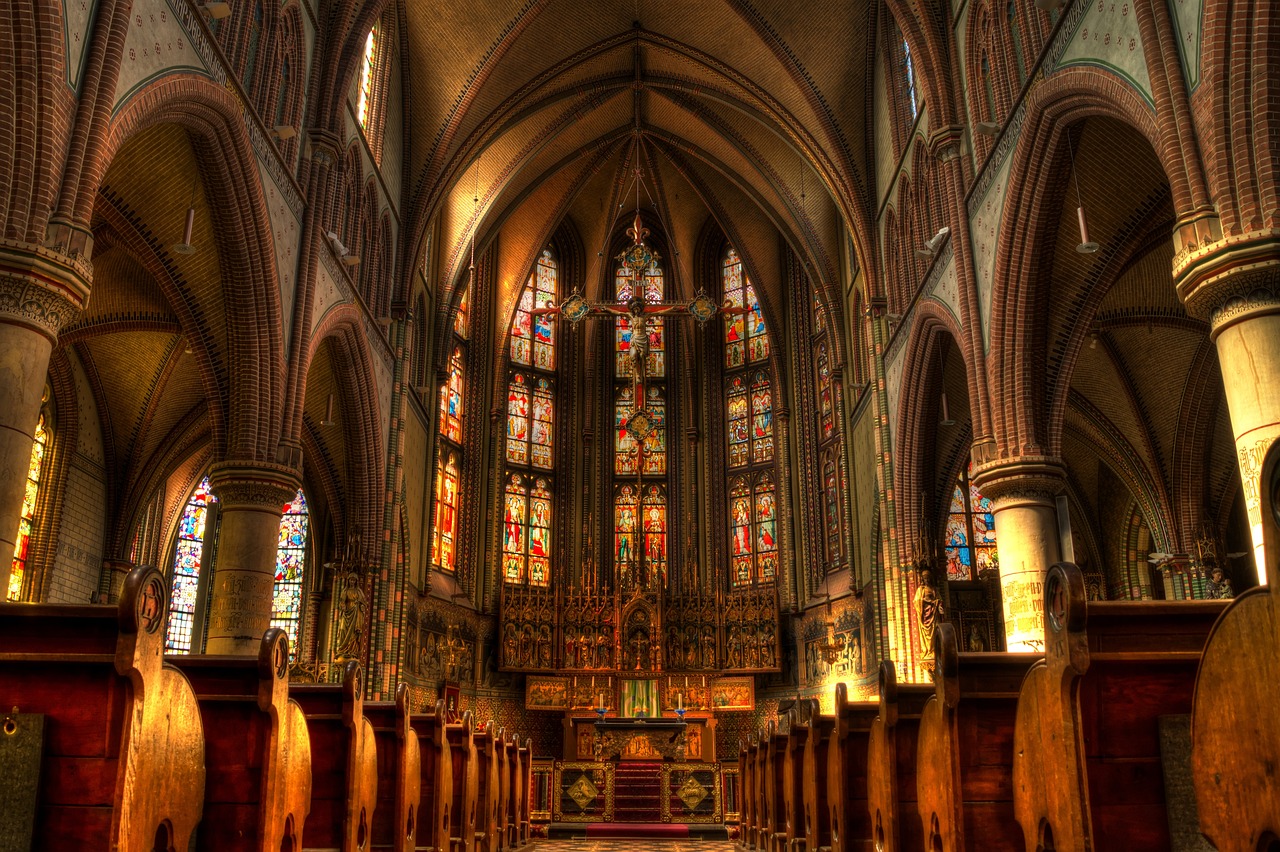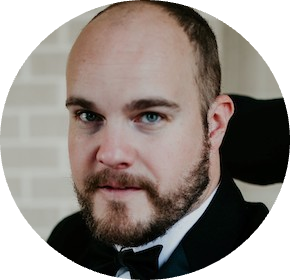
Three Contemporary Catholic Approaches to Democracy
Matthew P. Cavedon
Image: Church Altar Pews (Pixabay)
This article is part of our “Reassessing Democracy: Contemporary Perspectives” series. If you’d like to explore other articles in this series, click here.
T
here is no single Catholic political philosophy. Some intellectuals, like twentieth-century philosopher Heinrich Rommen, have even suggested that “Catholic political philosophy” is a contradiction in terms, given the centrality of natural law and reason to Catholic social thought. In light of the prevailing diversity, I want to describe three Catholic approaches to democracy in order of how much change they demand from the status quo, then briefly make the case for the middle one. I call the three approaches “quite comfortable,” “constructively critical,” and “conflictive.”
Quite comfortable
As for the first, mid-twentieth-century Jesuit Fr. John Courtney Murray thought America’s Framers “built better than they knew.” However much some of them may have believed they were following Enlightenment secularism and Lockean liberalism, they in fact mirrored key elements of Catholic natural-law thought and Christian humanism. Fr. Murray argued, then, that Catholics could feel quite comfortable with prevailing democratic arrangements.
However much some of them may have believed they were following Enlightenment secularism and Lockean liberalism, they in fact mirrored key elements of Catholic natural-law thought and Christian humanism.
Unsurprisingly, this attitude—sometimes taken much farther than Murray envisioned—has been foundational for many left-leaning U.S. Catholics. On the 1960 campaign trail, John F. Kennedy boasted of having opposed the appointment of an American ambassador to the Vatican and championed secular public schooling, declaring, “I do not speak for my church on public matters, and the church does not speak for me.” Some leading Democrats remain comfortable with such a thorough distinction between personal religious beliefs and politics. After being barred from receiving Communion by her archbishop due to supporting abortion rights, former House Speaker Nancy Pelosi responded, “I have a problem with my archbishop and I figure that’s his problem, not mine.” Despite these and other prominent examples, the “quite comfortable” category also includes some people on the political right. In a 1960s conversation with leading American conservative William F. Buckley, Garry Wills (in?)famously described the Church as “Mater si, Magistra no” (Mother yes, Teacher no). Catholics on the left and right have at times proven quite comfortable with prevailing democratic framings of politics.
Constructively critical
Others, though, take a constructively critical stance. The two examples I discuss are both popes, and it is perhaps natural that theologians would offer speculative critique rather than more direct political agendas. Before becoming Pope St. John Paul II, Karol Cardinal Wojtyła wrote an essay considering politics through the lens of participation and alienation. While he continued to write about democracy throughout his life, I see this less-known contribution as quite philosophically profound. In it, Wojtyła considered democracy important, calling self-determination “proper to every man” and referring to social participation as “a property of the person, which comes to light precisely when man acts (and exists) together with others.” But democracy has to take into account foundational values, especially the common good. Each individual’s right to “realize the personalistic value of his act while realizing what results from the community of action and being” led Wojtyła to reject both “individualism and totalism.” He endorsed democracy, but prioritized the socially situated human person.
Decades later, Pope Benedict XVI voiced similar conclusions in arguing that democracy must be secular but remain open to higher values. Speaking to British leaders at Westminster in 2010, the late pontiff insisted that ethical norms can be known through human reason; “the role of religion in political debate is not so much to supply these norms, as if they could not be known by non-believers—still less to propose concrete political solutions, which would lie altogether outside the competence of religion—but rather to help purify and shed light upon the application of reason.” The Church has thus “welcomed the spread of democracy,” rejecting both hard fundamentalism and heated sectarianism as distortions of religion’s proper role in political life.
The following year, Benedict spoke about the critical side of Catholic engagement with democracy in addressing the Bundestag of his native Germany. He compared a politics that rejects transcendent values to “a concrete bunker with no windows, in which we ourselves provide lighting and atmospheric conditions, being no longer willing to obtain either from God’s wide world.” Inviting politicians to instead “learn to make proper use” of reality, he praised environmentalism in particular as “a cry for fresh air which must not be ignored or pushed aside.” Like Wojtyła, Benedict constructively criticized democracy, backing it but emphasizing principles beyond it.
Conflictive
Contrastingly, the critical swallows the constructive for the conflictive Catholic. In 2020, Catholic convert and Harvard Law professor Adrian Vermeule wrote that American jurisprudence should not be “enslaved to the original meaning of the Constitution” but instead follow “principles of objective natural morality.” He echoed criticisms of democracy raised by Catholic “integralists,” a camp who, “rejecting the liberal separation of politics from concern with the end of human life,” propose that government be “subordinated” to Church power. Leading integralist Fr. Edmund Waldstein explicitly rejects popular consent as the basis for political legitimacy.
Integralists should not be caricatured as exclusively right-wing. Vermeule has endorsed sweeping federal regulatory powers, universal health care, and mass immigration into the U.S. by Latin American Catholics. Conflictive conclusions cut across ideological lines; Catholics taking this approach seek from their religion principles for a radical reorientation.
There are convincing negative and positive cases for democracy. Negatively, Catholicism is open to different political forms; it does not offer a prepackaged constitution to be imposed from above, as conflictive Catholics sometimes suggest.
For my own part, I am constructively critical. There are convincing negative and positive cases for democracy. Negatively, Catholicism is open to different political forms; it does not offer a prepackaged constitution to be imposed from above, as conflictive Catholics sometimes suggest. There is no religious imperative to topple a system that enjoys broad popular support and reflects longstanding traditions. (See St. Thomas Aquinas’s arguments in favor of social stability.) On the positive side, democracy rightly prioritizes universal human reason and equal human dignity. Much in St. Thomas Aquinas’s political thought—including about the necessity of the consent of the governed—is reflected well by modern democracy, as I have explored in a recent Politics and Religion article. Democracy also embodies political love of one’s worldly enemies, as Orthodox Christian thinker Aristotle Papanikolaou has beautifully written.
Nevertheless, Catholicism sheds necessary critical light on democracy. It gives politics a noble foundation, carries values that curb political pretensions, and guides politics toward true and enduring happiness. Democracy is a limited good—and, to paraphrase Benedict’s Bundestag address, Catholicism can fling political windows open to a sounder view of human life. ♦

Matthew Cavedon is the Robert Pool Fellow in Law and Religion at Emory’s Center for the Study of Law and Religion. Previously a criminal defense attorney in Gainesville, GA, he graduated from Emory University in 2015 with a law degree and masters of theological studies.
Recommended Citation
Cavedon, Matthew. “Three Contemporary Catholic Approaches to Democracy.” Canopy Forum, September 19, 2023. https://canopyforum.org/2023/09/19/three-contemporary-catholic-approaches-to-democracy

